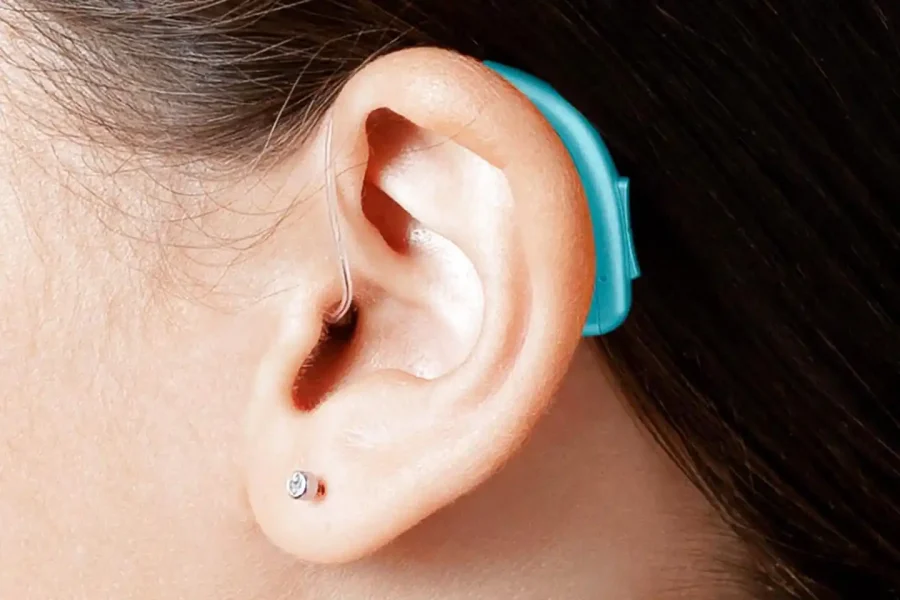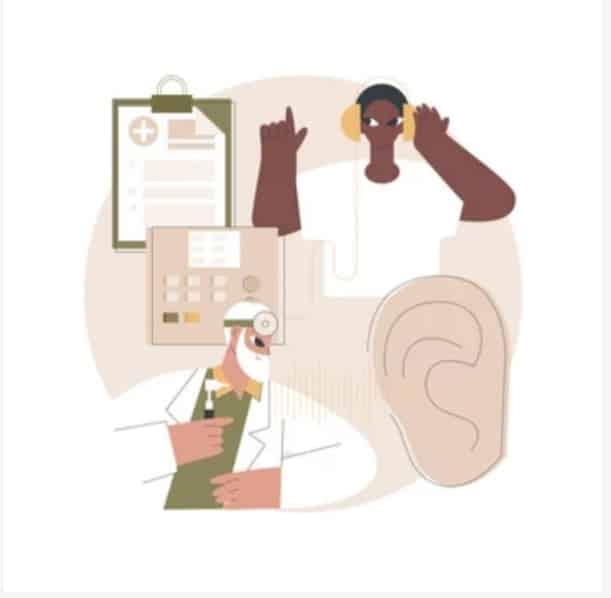Have you ever wondered whether you suffer from hearing loss? Have you experienced noticeable changes to the clarity or volume of sounds? Some fairly common signs may give you a better indication of the state of your hearing. If friends or family have mentioned that you turn the TV up too loud, you have difficulty hearing people on the phone, or you struggle to understand what someone is saying while in a particularly noisy place, these could be signs that your hearing has declined.
However, not everyone with hearing loss experiences the same symptoms because various types of hearing loss exist, and your condition can also have a range of severity. For instance, some types of hearing loss may prevent you from hearing high, mid-range, or low-frequency sounds, whereas other types might cause a constant ringing sound in your ears. It is also possible that your ears may be unequally impacted by these conditions.
Hearing loss can come as the result of various factors. Sensorineural hearing loss is caused when the delicate hairs in your inner ear or the nerve pathways delivering sounds to your brain are damaged. Alternatively, conductive hearing loss occurs when wax, fluid, or a ruptured eardrum block sounds from reaching your inner eardrum. Your hearing can also naturally decline as you age.
The Negative Impacts of Untreated Hearing Loss
Leaving your hearing condition untreated can seriously impact your overall health. When your hearing declines, the parts of your brain that are normally associated with interpreting sounds begin to be understimulated. As time goes on, that lack of stimulation can affect your cognitive abilities, thus impacting your ability to understand and process information.
As this worsens, you may even start having memory loss issues. Your ability to hear also contributes, at least in part, to your ability to properly orient and balance yourself. Therefore, when your hearing becomes less reliable, so does your balance and stability. For all these reasons, socializing can become extremely taxing, and you may start avoiding social activities altogether.
Unfortunately, once that happens, it is also not uncommon for increased feelings of loneliness and depression to take hold. If your situation escalates this far, it could negatively impact all aspects of your life, including your job, relationships, and hobbies.
Understanding the Connection Between Hearing Loss and Depression
Multiple studies have concluded that your chances of experiencing depression raise significantly as your hearing declines. However, you may not recognize the symptoms of depression right away, especially if this is your first time dealing with mental health concerns. Of course, some aspects of being depressed may be obvious, such as feelings of intense sadness, loneliness, or hopelessness.
There are also some other ways depression may impact your life, though, which may not be as immediately obvious. For instance, struggles with concentration, appetite, quality of sleep, and interest in various things could all be linked to depression. The reason hearing loss is often a precursor to depression mostly has to do with the social isolation that it causes.
If you are self-conscious about your hearing because you are worried about not being able to hear or understand your friends or family in social settings, you may develop anxieties that discourage you from socializing. However, the frustration of this situation and your lack of social interaction could lead to mental decline.
That is why it is incredibly important that you identify any signs of hearing loss early, so you can prevent your condition from progressing to a point where it is out of control and affecting your life to such a strong degree.
Why You Should Have a Hearing Test Every Few Years
If you are uncertain about how bad your hearing may be, it helps to get it regularly tested. When you test your hearing, you can get an early diagnosis and begin working with a doctor to come up with a solution.
There are various tests you may be given, such as a pure tone audiometry (PTA) test, a speech perception test, a tympanometry test, a tuning fork test, a bone conduction test, or an auditory brainstem response (ABR) test. Each of these tests applies unique methods that will help a doctor to understand the exact cause and severity of your hearing condition.
Addressing your hearing loss and getting examined can improve your quality of life in numerous ways. Your family relationships will likely get better since your family may misinterpret your lack of hearing as an active attempt to ignore them. As your range of hearing returns after a solution is found, you will be able to enjoy the little details of daily life again, such as the sound of children playing or birds singing.
As well, you will eliminate the stress that comes with uncertainty. Once you know the state of your hearing, you will not need to wonder and worry anymore. The sooner you get tested, the sooner you can begin taking corrective measures. That also means you can get back to having a social life without worrying about your inability to participate in conversations.
Diagnosing your hearing condition can also help doctors to better understand any other conditions you may be experiencing that are connected to it, such as dementia or depression.
Avoid Depression by Treating Your Hearing Loss
Most people assume that the impacts of hearing loss are limited to a few inconveniences. However, the reality is that hearing loss can have a significant impact on your quality of life in various ways since it affects you both physically and mentally. In some extreme cases, hearing loss can even lead to intense feelings of loneliness and depression.
Therefore, it is essential that you get your hearing tested regularly, and you take any symptoms of hearing loss seriously. Once you understand the state of your hearing, you can treat it accordingly and get back to your normal life again.



